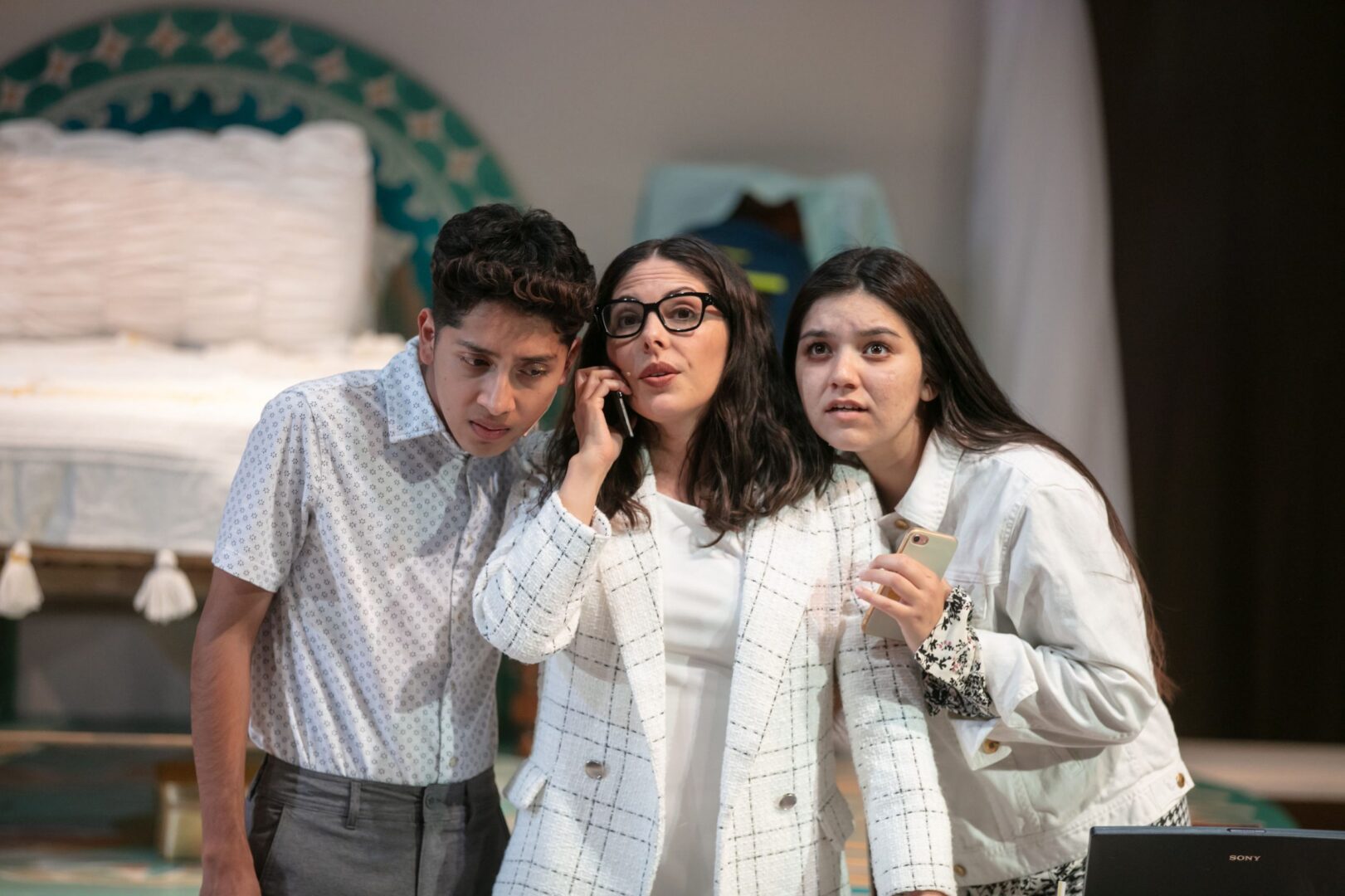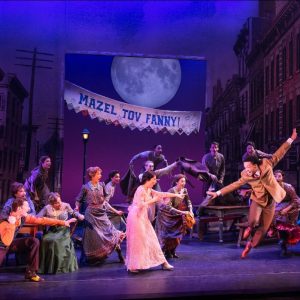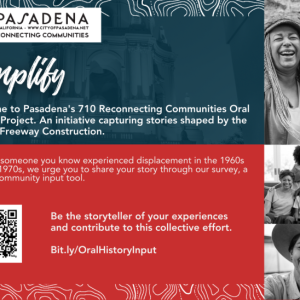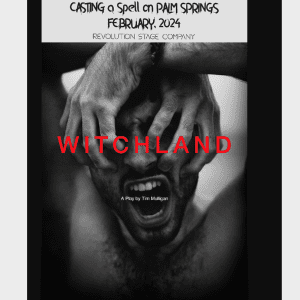 View Winners →
View Winners → 
An original production of The Latino Theater Company, ”Sleep with the Angels,” is another entry in their long list of shows focused on the experiences of marginalized groups.
This production examines the life of single mother Molly, who hires a Mexican woman named Juana. She helps Molly look after her teenage children. The recently emigrated Juana as a result injects some more “magic” into Molly and her kids’ lives and learns a bit more about each other.
Hey SoCal spoke to award-winning playwright Evelina Fernández, director José Luis Valenzuela, actress Esperanza América, and musician Robert Revell.
This cast and crew are all related as well. Evalina, José Luis, and Esperanza are mother, father, and daughter respectively. Esperanza and Robert are married with a child of their own, making this a true family production:
Why Sleep with the Angels?
To kick things off, Hey SoCal asked what made them choose “Sleep with the Angels” as the title was very striking.
Hey SoCal: Sleep with the Angels is such a striking title, where does it come from?
Evelina Fernández: It’s a saying in Spanish when you tell them duerme con los angelitos it’s sweet dreams. Sleep with the Angels in other cultures means drop dead but not in our culture. Which is what a lot of people say to their kids before they go to sleep. So, Juana says that in the play and sings a song called duerme con los angelitos.
Hey SoCal: Would you say the play has a dream-like quality to it?
José Luis Valenzuela: It’s not a dream-like quality per se, it’s more of a magical quality. Because, it has a lot to do with the immigrant workers who come and take care of the kids here of the families and they actually teach them values and language, and love, and everything. And they do magic to these children and to these families because it transforms their lives! In that way, it means a lot of magic happens in the play itself. And it’s up to remedies like the red thread you put on your forehead to get rid of hiccups or the different teas that make you feel better, or praying to the saints and he will create a miracle. So, that kind of magic, it’s kind of fun and beautiful I think.
Hey SoCal: What inspired the creation of this play?
Fernández: When my daughter was younger she used to work for a family taking care of a young boy who was gender curious. She would tell me all kinds of stories about this boy and they were really funny and the relationship was really cute to me.
He was Jewish but he really wanted to be Mexican you know? When he had his bar mitzvah he had mariachis, taco trucks, and he spoke perfect Spanish! It kind of inspired me cause I thought wouldn’t it be great to write a story about a nanny and a boy who’s trying to figure out his gender identity? It started with that.
Hey SoCal: Do you feel like two different cultures are going to be sharing something similar in the play?
Fernández: It’s a Latino family that’s really assimilated so they’ve kind of lost touch with that authentic Mexican culture. They don’t speak Spanish anymore so she comes in and brings that out of them again.
Hey SoCal: The character of Juana has been described as an indigenous Mary Poppins, how much did she influence Juana?
Esperanza América: I think it’s more of a loose description of her. She’s magical in a different kind of way because like my dad said, it’s based off of cultural remedies. I think it’s more like there are people who come into your life like the nannies and housekeepers and they keep these families’ lives together and help them and they’re the ones who do all the magic in the family.
Because without them, some day-to-day things wouldn’t be able to happen. I think they’re not usually represented on the stage in a positive way. There’s plenty of plays with maids and Latinos playing maids and stuff like that. But I think this is shining a light on how important these characters are in our lives and in our communities.
Hey SoCal: On the subject of magic, what can audiences expect?
América: There’s a few things that seem like magic but aren’t magic at all.
Fernández: Things like ojas de callate la boca or te de alegria.
América: But they’re just things like te de canela or eucalyptus and stuff like that. My tias would be like “if you’re sick, you should drink this tea.” Even with our baby, the tias on my mom’s side who are more like Chicanas were the ones who were pushing me to give tea to the baby!
Which is interesting because they’re not as connected to their Mexican heritage as my dad’s side. But they still have those cultural traditions that they believe in and then when you google online like, “can you give a baby tea?” and it’s like, “no, don’t.”
Hey SoCal: There’s an emphasis on music in other productions that the Latino Theater Company, how would you say it’s integrated in this show?
Robert Revell: Well, there’s a distinction as the new resident composer that I’ve been taught that these aren’t musicals, they’re plays with music. What that means is that all of the music and sound is justified. If somebody is feeling an emotion extremely deeply, the situation is set up so they express that emotion locally in song. So we’ve written several songs that I think are really beautiful.
Since I don’t speak Spanish, Espi and I would get lyrics from Evalina and we would come up with a melody and some music behind it. Then we would try to fit it in a melody and tweak the words a little bit and then we would have to send them back to Jose Luis and Evalina to correct the Spanish and make sure everything’s right and send it back and work on it some more. So it’s been a process of writing music with the whole family together.
Hey SoCal: Is there anything visual you’re particularly proud of that you’ve achieved in this show?
Valenzuela: I hope I will! Because there’s a part of the show that has a drape and that drape is very important, it’s like a curtain. And the material hasn’t gotten here yet so we’re using some sort of a curtain for now. The scenery is beautiful, I think it’s really really beautiful. We work in the company a lot with composition, how bodies on the space look, its really important to us. We’re getting there, I think, in relation to this particular play.
The little magic things, I think they’re beautiful because they’re so simple. They’re images that not everyone sees every day so those things I think are going to cause an impact on people. There’s beautiful moments of composition with the musician, Juana, the young man [on stage]. I think visually it can be very beautiful, very different and usually we have lots of visual elements in our work but I think visually it’s going to be very appealing and beautiful.
Hey SoCal: Is this play another step towards more mainstream attention for The Latino Theater Company?
Valenzuela: That’s one of the goals of the company, to put out things and especially in our own community because, as you said, you weren’t interested in going to the theater as a young man. We do plays in the Latino community to have dialogue, for the issues we’re dealing with as a community.
That is important, as a company, that every time we put a play out there is that we create more dialogue in the community. The idea is to change the perception of the world and even in ourselves with who we are and with what people expect us to be.
Fernández: I think that many times, we’re not seen within the context of America, I say we experience what happens in the country like everyone else. We’re experiencing COVID, we experienced AIDS and economic crises. Our human experience is not only immigration and gang violence, because that’s usually how we’re portrayed. Those are kind of our “Latino issues” right?
But the truth is we’ve experienced all of it, everything that everybody else in the country experiences, we do too. We’ve participated in all the world wars, Vietnam, Afghanistan, Iraq, but when we see those stories, we’re never part of it. It’s as if we didn’t participate. That’s kind of our mission as the Latino Theater Company, to put our stories within an American context.
Even though the subject matter got serious towards the end, Esperanza made sure to emphasize the humor in the show.
América: It’s important to know that the show is really funny; we talk about all these issues but there’s a lot of humor and really fun moments in the play. And I think people will have a good time if they come.
You can reach Eloin Barahona-Garcia at eloin@beaconmedianews.com.










































































































